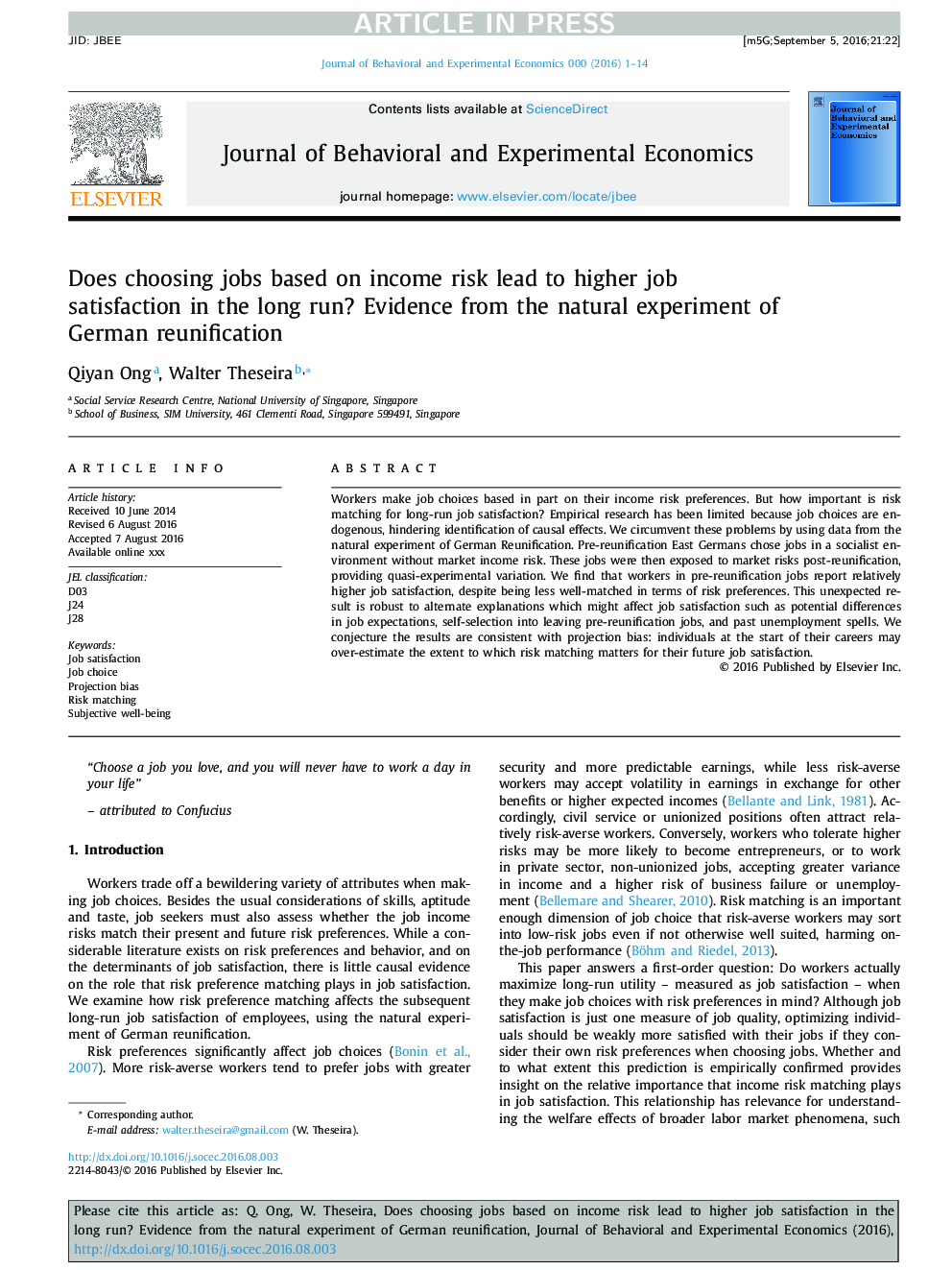| Article ID | Journal | Published Year | Pages | File Type |
|---|---|---|---|---|
| 5034166 | Journal of Behavioral and Experimental Economics | 2016 | 14 Pages |
Abstract
Workers make job choices based in part on their income risk preferences. But how important is risk matching for long-run job satisfaction? Empirical research has been limited because job choices are endogenous, hindering identification of causal effects. We circumvent these problems by using data from the natural experiment of German Reunification. Pre-reunification East Germans chose jobs in a socialist environment without market income risk. These jobs were then exposed to market risks post-reunification, providing quasi-experimental variation. We find that workers in pre-reunification jobs report relatively higher job satisfaction, despite being less well-matched in terms of risk preferences. This unexpected result is robust to alternate explanations which might affect job satisfaction such as potential differences in job expectations, self-selection into leaving pre-reunification jobs, and past unemployment spells. We conjecture the results are consistent with projection bias: individuals at the start of their careers may over-estimate the extent to which risk matching matters for their future job satisfaction.
Related Topics
Social Sciences and Humanities
Economics, Econometrics and Finance
Economics and Econometrics
Authors
Qiyan Ong, Walter Theseira,
